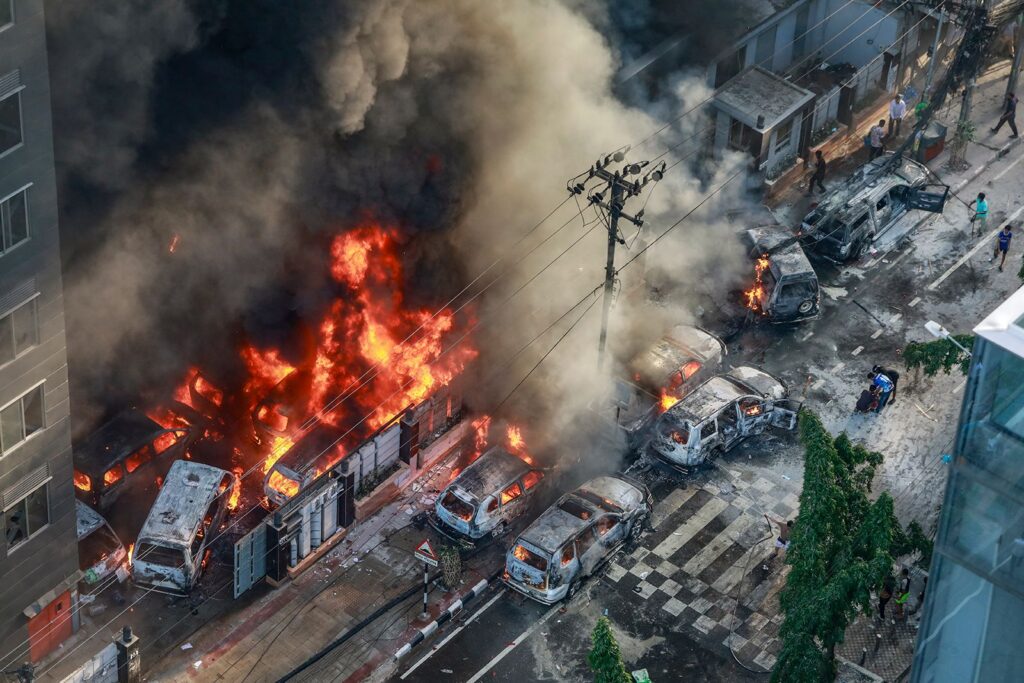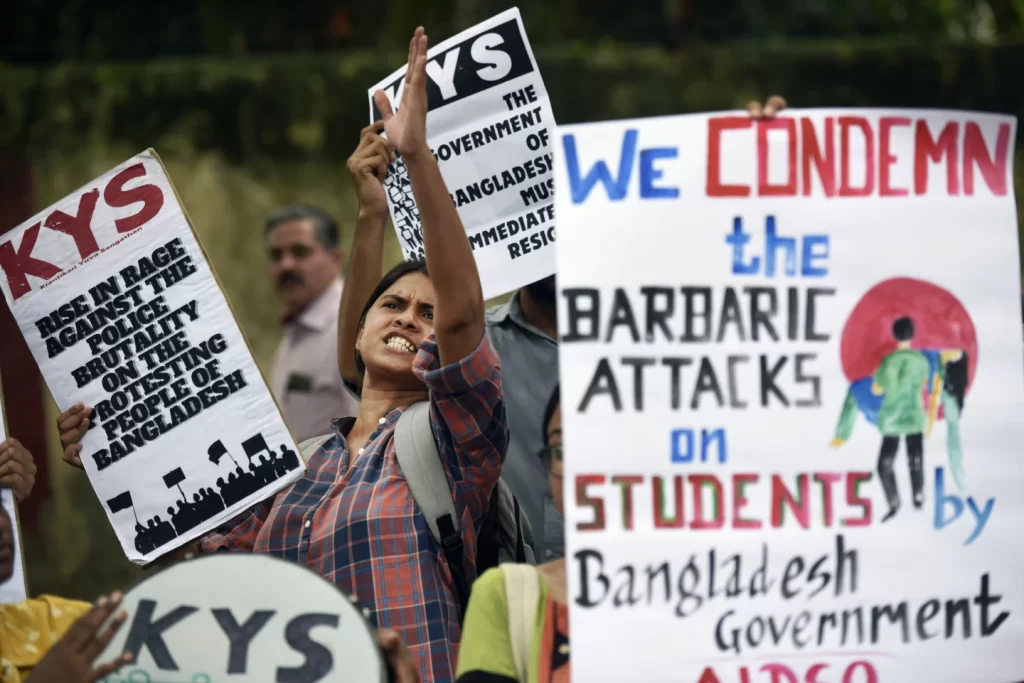Dhaka, Bangladesh – In a dramatic escalation of unrest, police and security officials in Bangladesh fired bullets, tear gas, and sound grenades at protesters on Friday, banning all gatherings in the capital. This comes after days of violent clashes over the allocation of government jobs, which have seen the nation’s internet and mobile services cut off to control the situation.

The protests, which began weeks ago, surged sharply on Monday and now represent the most significant challenge to Prime Minister Sheikh Hasina’s government since her fourth consecutive term victory in a January election, boycotted by the main opposition parties. The demonstrators, primarily students and recent graduates, have voiced their frustration over the lack of good job opportunities and alleged corruption in government job allocations.
The latest clashes on Friday marked the deadliest day of the protests. Local media reported that 22 people were killed as protesting students attempted to enforce a “complete shutdown” of the country. Somoy TV reported that an additional four people were killed on Friday, though authorities could not immediately confirm these figures.
The government has responded by deploying police and paramilitary forces across Dhaka to lock down campuses and disperse protesters. On Wednesday, universities, including the country’s largest institutions, suspended classes and closed dormitories. By Friday, police had banned all gatherings and demonstrations in the city.

In a significant crackdown, security forces targeted a large group of over 1,000 protesters gathered outside the head office of state-run Bangladesh Television, which had been attacked and set on fire by protesters the previous day.
The situation in Bangladesh remains tense as the government struggles to contain the protests and address the underlying economic and social issues driving the unrest. The international community continues to monitor developments closely, urging for restraint and dialogue to resolve the crisis peacefully. The protests have not only challenged the stability of Sheikh Hasina’s government but also highlighted the urgent need for reforms to address the grievances of Bangladesh’s youth.
The ongoing chaos has highlighted deep cracks in Bangladesh’s governance and economy. The growing frustration among young graduates, facing a bleak job market, has fueled the protests. The government’s heavy-handed approach, including shutting down internet and mobile services, has drawn criticism from human rights organizations and the international community.
AP Reports


